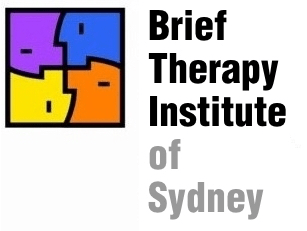

The revolution that has been sweeping psychology, counselling and welfare work has also hit education!
Much of the work of psychologists, counsellors and welfare workers is about helping people CHANGE — change the way they feel, or the way they behave, or the way they relate. Traditionally, this work has started from trying to figure out "what is wrong?" (and, sometimes, "WHY is it wrong?" ... and, sometimes, WHO is wrong?" ... and, sometimes, classifying, diagnosing or labelling it. Then, treatment or problem-solving or cure seeks to fix it
In schools, teachers, Year-advisers, co-ordinators, Head Teachers, Deputies, Principals ... spend a great deal of their time having conversations aimed at getting students to CHANGE — change the way they feel, or the way they behave, or the way they learn. Kindergarten teachers have known for years that sometimes you just sternly say to little Johnnie, "Stop running around. Sit down and be quiet" ... however, sometimes you say to little Johnnie, "Gosh, haven't you got a lot of energy today? You can be my special messenger to go up to the office!". That is, sometimes you have conversations that open possibilities.
The revolution in psychology, counselling and welfare has been a move away from "problem-solving" and from "trying to get to the bottom of what's going on" towards a focus on peoples' strengths, on "what's working" and on building possibilities. Positive Psychology and "the strengths perspective" have offered a radically different way to think about working with people. Solution-Focused Brief Therapy is an EVIDENCE-BASED approach that offers practical tools for conversations that uncover or encourage change.
The Brief Solutions "STRENGTHS IN SCHOOLS" project is about taking these ideas OUT of the psychology context and INTO the classroom and the playground.
Strengths in Schools home
Strengths in Schools team — who we are, our backgrounds and experience
Professional development training for teachers
Consultation to schools who wish to implement Strengths- and Solution-Focused ideas in the school
Solution-Focused training for school counsellors, guidance officers and educational psychologists
International examples of Solution-Focused ideas applied in schools
References, links and resources
Main Brief Therapy Institute of Sydney home page
